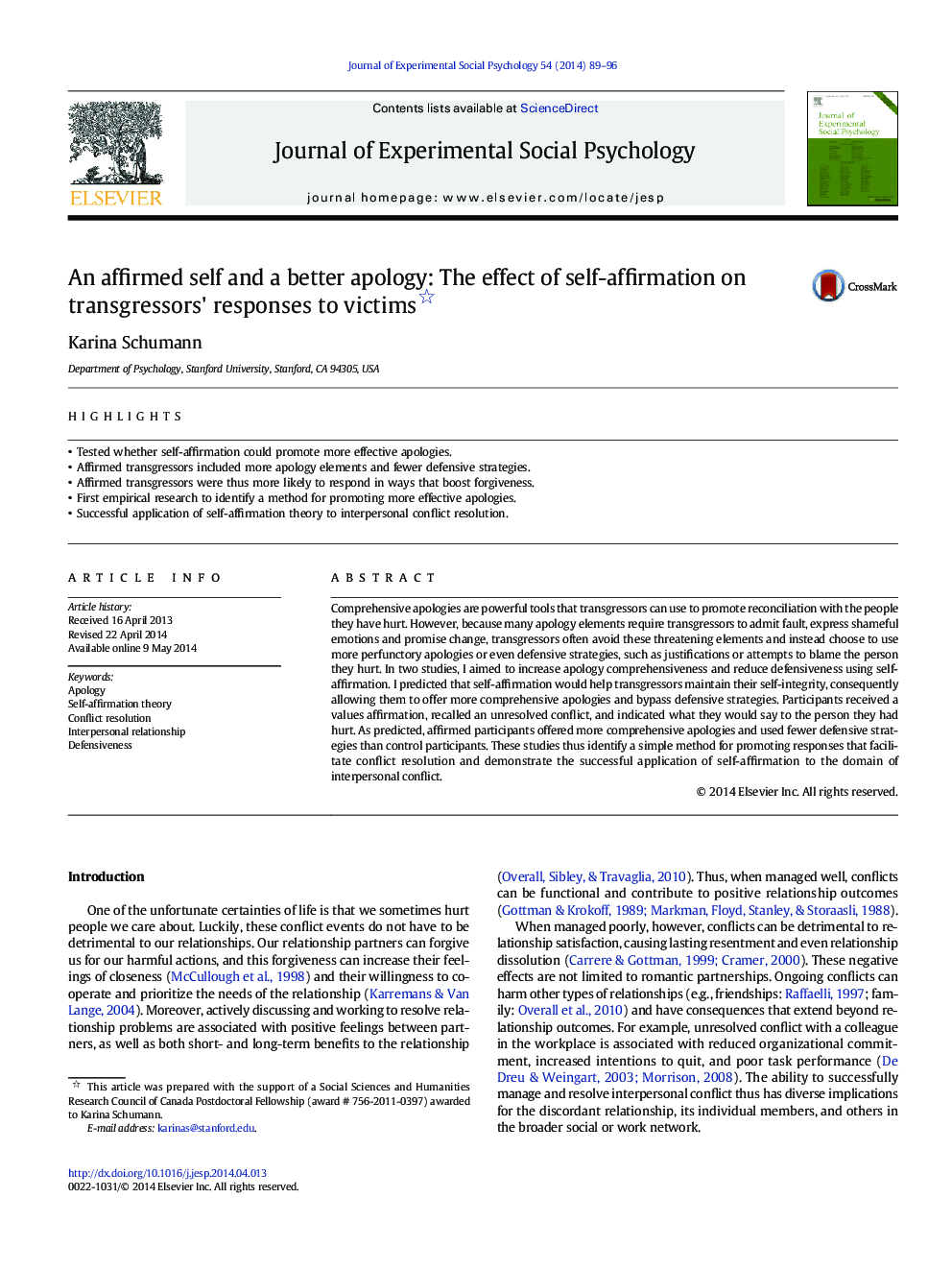| کد مقاله | کد نشریه | سال انتشار | مقاله انگلیسی | نسخه تمام متن |
|---|---|---|---|---|
| 947802 | 1475869 | 2014 | 8 صفحه PDF | دانلود رایگان |
• Tested whether self-affirmation could promote more effective apologies.
• Affirmed transgressors included more apology elements and fewer defensive strategies.
• Affirmed transgressors were thus more likely to respond in ways that boost forgiveness.
• First empirical research to identify a method for promoting more effective apologies.
• Successful application of self-affirmation theory to interpersonal conflict resolution.
Comprehensive apologies are powerful tools that transgressors can use to promote reconciliation with the people they have hurt. However, because many apology elements require transgressors to admit fault, express shameful emotions and promise change, transgressors often avoid these threatening elements and instead choose to use more perfunctory apologies or even defensive strategies, such as justifications or attempts to blame the person they hurt. In two studies, I aimed to increase apology comprehensiveness and reduce defensiveness using self-affirmation. I predicted that self-affirmation would help transgressors maintain their self-integrity, consequently allowing them to offer more comprehensive apologies and bypass defensive strategies. Participants received a values affirmation, recalled an unresolved conflict, and indicated what they would say to the person they had hurt. As predicted, affirmed participants offered more comprehensive apologies and used fewer defensive strategies than control participants. These studies thus identify a simple method for promoting responses that facilitate conflict resolution and demonstrate the successful application of self-affirmation to the domain of interpersonal conflict.
Journal: Journal of Experimental Social Psychology - Volume 54, September 2014, Pages 89–96
